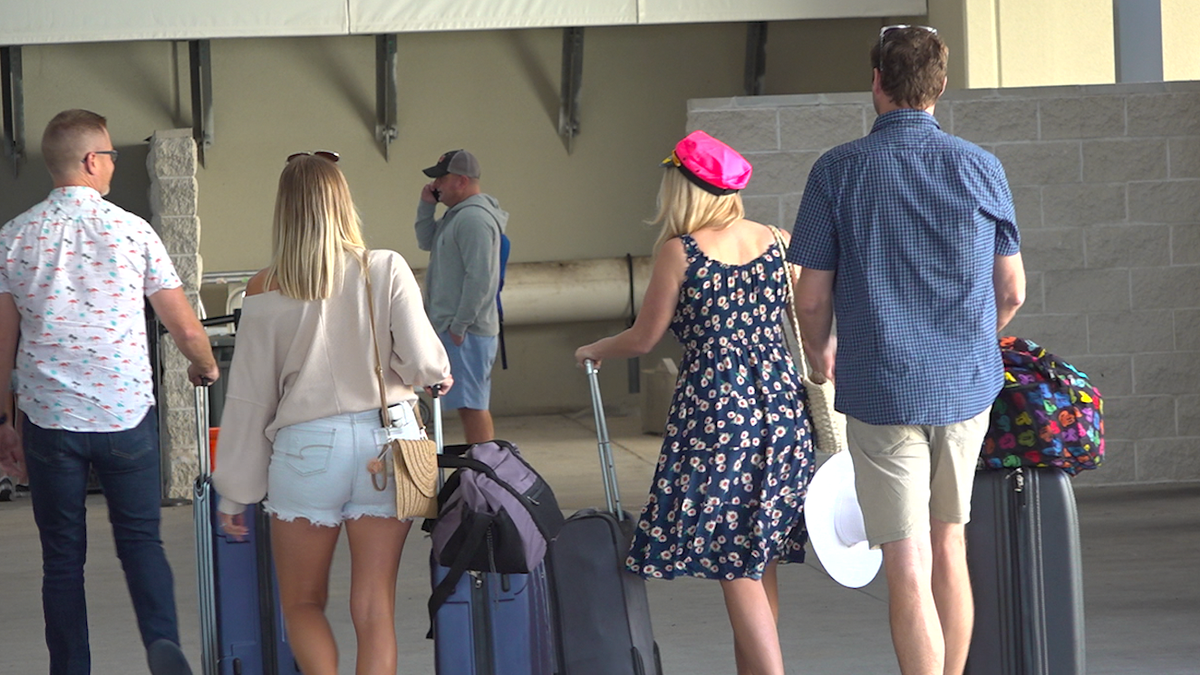Cruise industry tries to stay afloat during omicron surge
The cruise industry is treading water as COVID-19 cases surge aboard ships.
CAPE CANAVERAL, FL – The cruise industry is treading water as coronavirus cases surge aboard ships.
At a Senate hearing on Tuesday, Centers for Disease Control and Prevention Director Dr. Rochelle Walensky said cruise ships have seen a 30-fold increase in COVID-19 cases over the past two weeks.
During the first two weeks of December, 162 cases were reported on ships. The following two weeks, due to the highly contagious omicron variant, U.S. ships reported about 5,000 cases to the CDC.
CDC data also shows that every cruise ship carrying passengers in U.S. waters is now carrying COVID-19. That's 91 ships.
On Dec. 30, the CDC raised its travel health notice for cruise ship travel to a level 4, its highest health warning. This advisory includes all passengers, regardless of vaccination status.
CDC RECOMMENDS AVOIDING CRUISE SHIPS AS OMICRON VARIANT SURGES
Two major cruise lines, Norwegian and Royal Caribbean, announced cancellations last week, but most fleets are still sailing despite the CDC warnings.
Brian Salerno with the Cruise Line International Association, the industry's trade group, said that given all the protective measures in place cruises can be one of the safest experiences right now.

A passenger shows her negative covid-19 test to a crew member before she boards.
"Our industry has gone to great lengths to promote vaccinations," said Salerno. "Many cruises are sold on that basis. Crews are entirely vaccinated and routinely tested. Passengers have to show a negative COVID test to board, so it's confusing to us that both vaccinated and unvaccinated travelers are included in the advisory."
Travelers embarking at Port Canaveral in Florida said they feel safe with the precautions in place.

Despite the CDC's warning against cruise travel, eager passengers still board ships at Port Canaveral.
"I think the cruise lines are doing a fantastic job making sure that people are tested and negative at least when they get onboard," said passenger Melissa Distefano. "My husband and I are both first responders and we just thought it was time. You have to live your life. Here it's more precautions than when you get on an airplane so I feel pretty safe."
The cruise line industry has one of the most transparent COVID-19 reporting methods in the U.S. Every day, ships are required to file a report with the CDC on its health conditions onboard.
"We really stand alone in our reporting" Salerno said. "There's a big spotlight on us that's not there with other modes of transportation."
Even with the increase in cases, Salerno does not anticipate the CDC will shut down cruises again.
NEARLY 50 ROYAL CARIBBEAN CRUISE SHIP PASSENGERS CATCH COVID-19
At the start of the pandemic, the CDC issued a "No Sail Order," putting a halt to the $55 billion industry. Many businesses are still recovering, including restaurants and shops that rely on the foot traffic at the ports.
"When the cruise lines stopped, it really left a gap in our business volume, hotels and restaurants that was well missed," said Michael Schwarz, the co-owner of Fishlips Waterfront Bar and Grill at Port Canaveral.
Schwarz said his restaurant lost at least 15% of its revenue during that time. Now with the omicron variant, he hopes spring break isn't on the line.
"That's what we're getting ready for," Schwarz said. "We're really looking forward to that. Without it, it will be another gap we have to work through, but with this pandemic, it taught us if we can deal with that, we can deal with this."
As of Tuesday, every ship with passengers is under a yellow status from the CDC. This means the number of COVID cases onboard have not surpassed the threshold where onboard medical staff are overwhelmed.












































